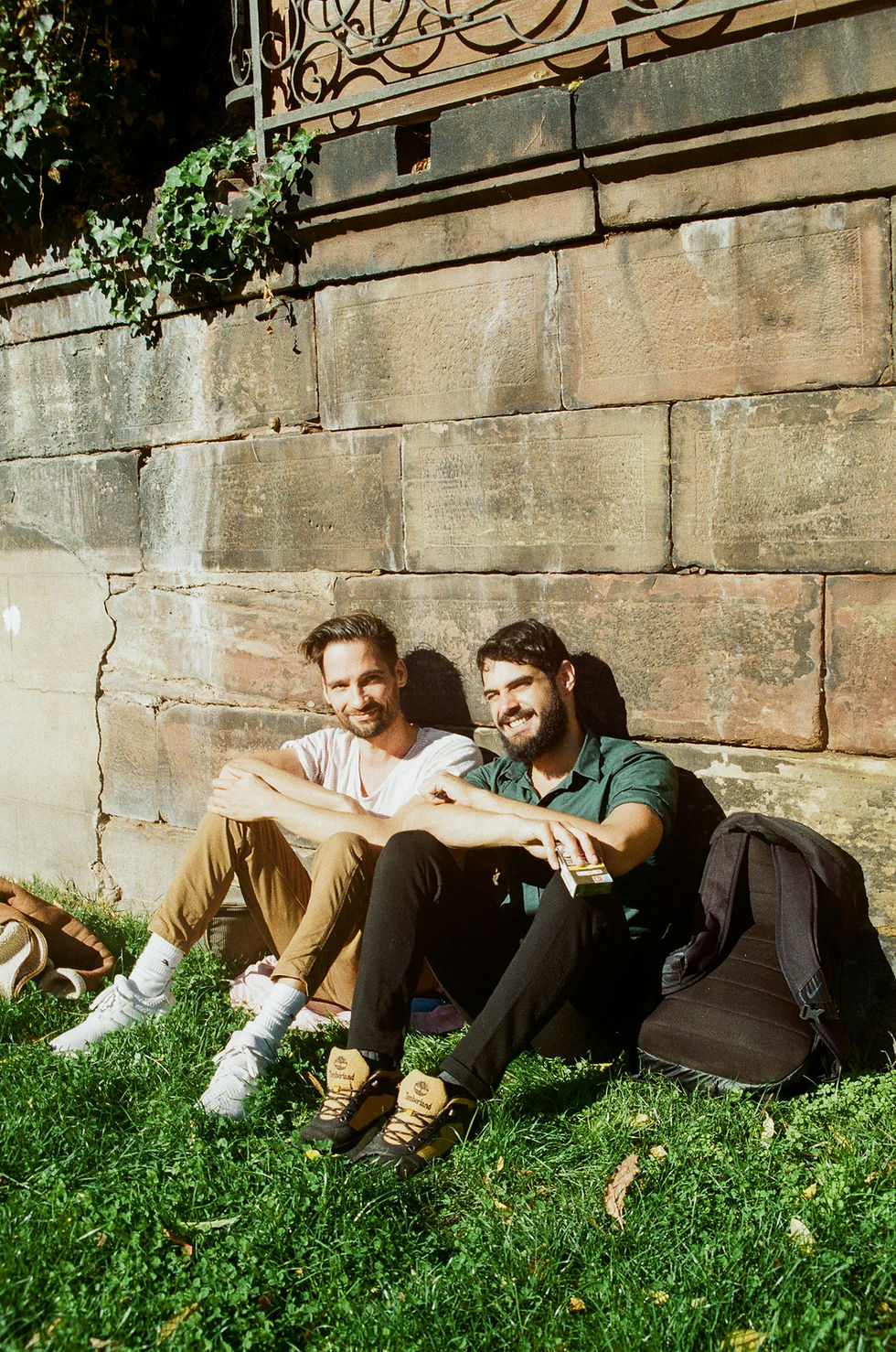Why Loneliness Affects So Many Gay Men
- Chris Tompkins

- Nov 6, 2025
- 4 min read
Why some gay men feel alone even around others, and how to change it.
KEY POINTS
For many gay men, loneliness often stems from unspoken feelings and unmet emotional needs.
Hiding parts of ourselves to avoid judgment can create chronic isolation.
Healing begins when we speak honestly about how we feel and let ourselves be seen.

Loneliness is one of the most common issues that comes up in the work I do with gay men. Regardless of age, it’s a topic that is often talked about in therapy.
Gay men's loneliness is rarely about being alone, though. More often, it’s about carrying thoughts, feelings, or experiences we do not feel safe to share.
Carl Jung said, “Loneliness does not come from having no people around you, but from being unable to communicate the things that seem important to you.”
For many gay men, the challenge isn’t a lack of people—it’s not having spaces where they can show up as themselves and talk about the things that matter most to them. A lifetime, or a childhood, can pass without the chance to talk about feelings, desires, or interests—or, what’s more, without having those feelings mirrored or reflected back in any way.
A 2017 article about the epidemic of loneliness among gay men, though nearly a decade old, was a required read in graduate school and continues to strike a chord among gay men today.
The entire article explores a type of loneliness that many gay men continue to face. Even in spaces that are socially accepting, visibility and legal progress have not erased the experience of isolation. The article describes how loneliness often comes not from a lack of community but from the challenge of being truly known. The work of coming out can bring freedom in some ways, but it does not automatically lead to connection.
Loneliness often manifests subtly, even for those of us who appear confident. Some respond to years of not feeling seen by withdrawing, keeping relationships at a surface level, or overcompensating to fit perceived expectations. Others feel an internal tension, a sense that no one could fully understand their experience, which can affect self-esteem and create hesitancy around intimacy.
For those who have experienced rejection, bullying, or family disapproval, loneliness can feel like a shadow that follows them even around supportive people, in settings that are meant to be accepting—like being in a room full of people yet still feeling alone.
Part of what makes this type of loneliness so persistent is the mismatch between internal reality and external expression. Many gay men have learned to hide parts of themselves to protect against judgment or exclusion. The cost of protection in adulthood is a chronic sense of isolation, even when they are “out” and visible.
A client, who is an openly gay man in Los Angeles, where I practice, recently shared in session that during a trip last week, he experienced two subtle forms of homophobia that completely caught him off guard. Echoes from his past that kicked up old defense mechanisms like shame and disconnection.
Healing begins with discovering all that we’ve carried in silence. It starts by recognizing the areas of our lives where we hold back, whether out of fear, shame, or habit. Therapy, supportive friendships, chosen family, or community spaces can provide opportunities to practice sharing our lives and ourselves safely.
The goal is not to perform vulnerability for approval but to allow yourself to exist fully and to test, even in small and incremental ways, what it feels like to be understood and really seen.
Most importantly, healing requires turning inward, which is counter to what we’re often told societally. Nothing “out there” will resolve an inner sense of loneliness.
Many gay men have internalized messages about worth, desire, and masculinity from family, society, and religion. These messages can make it feel impossible to share our true thoughts, feelings, and desires. Taking time to identify and separate our internalized expectations from our authentic selves creates space for connection to emerge.
The journey inward is both practical and reflective—practical in noticing patterns and making choices to engage differently, reflective in observing the parts of ourselves that have been hidden and gradually integrating them into our lives.
The good news is that we can start small—saying what matters to us with people we trust, even if it feels awkward or uncomfortable at first. Noticing how it feels when someone truly hears us, or when we hear ourselves out loud for the first time.
Ultimately, the path through loneliness is about learning to speak what matters most so we are no longer alone with it. This is the work of letting ourselves be seen and known for who we really are.
Connection emerges not simply from being around people but from showing up in ways that those around us can witness and respond to. Healing from loneliness requires courage, self-compassion, and patience, but it also opens the possibility for a sense of belonging that is not dependent on others’ approval or acceptance, but on our willingness to inhabit our own lives fully.
Featured as an Essential Read on:
Chris Tompkins is a gay male therapist in West Hollywood (Los Angeles) who specializes in working with adult gay men, individuals and couples. He supports clients navigating identity, relationships, religious trauma, addiction, and self-esteem. To learn more, explore therapeutic services or schedule a free consultation.




Comments